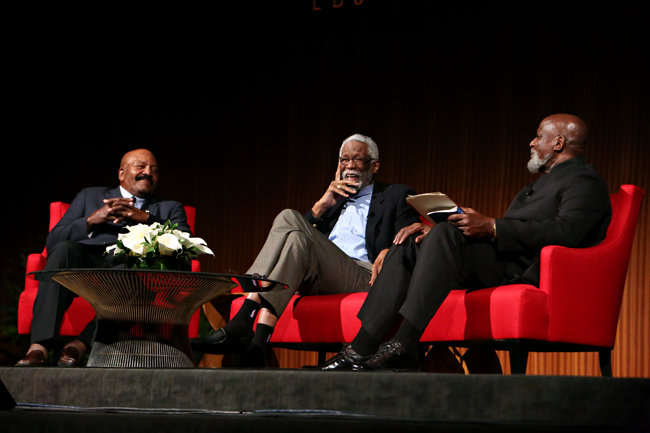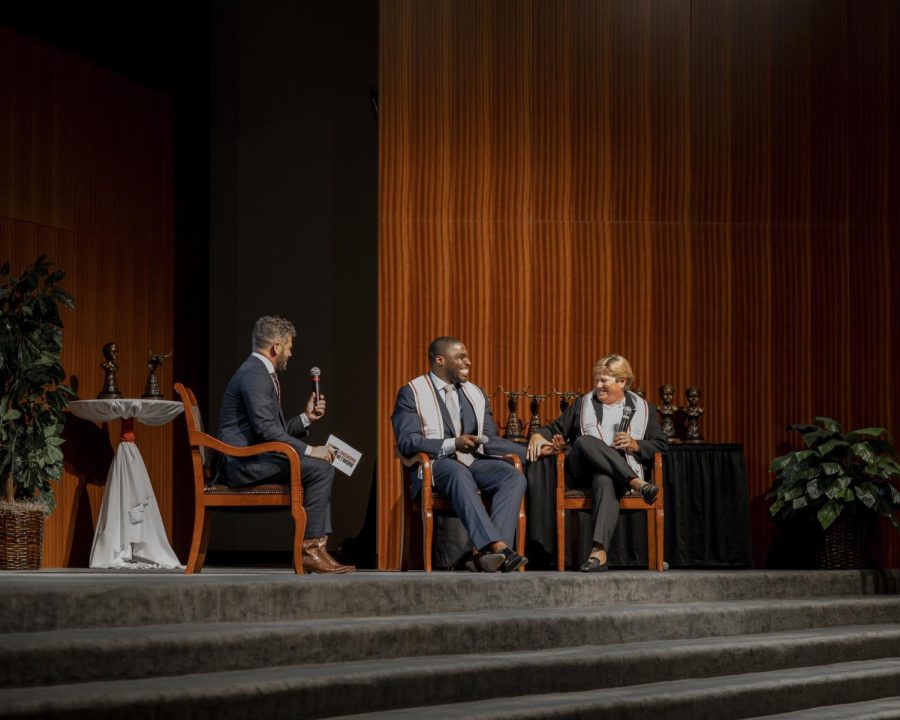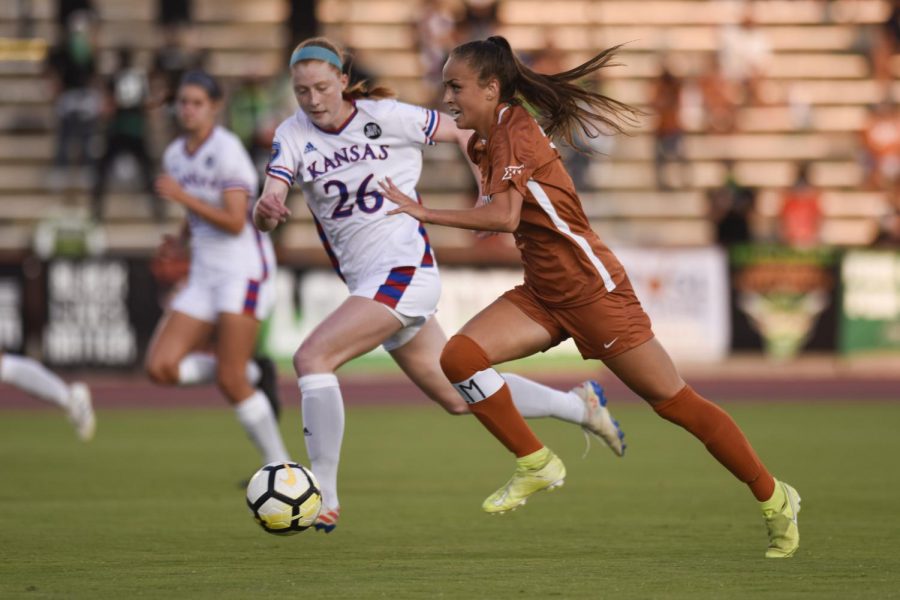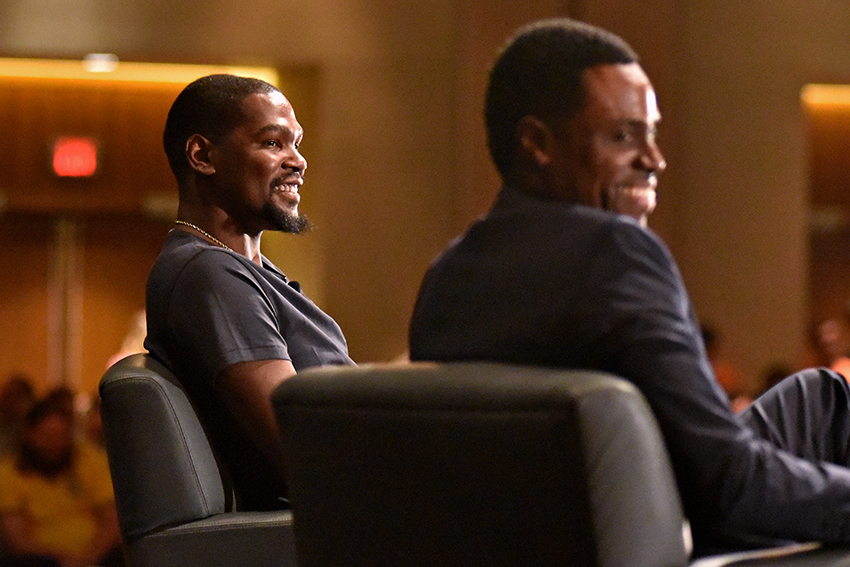Bill Russell and Jim Brown were already utilizing their status as high profile athletes to strengthen the civil rights movement in their early 20s — the same age as many of today’s college students.
At the Civil Rights Summit on Wednesday, Russell, Brown and Harry Edwards, sociology professor emeritus at the University of California, Berkeley, noted that the two athletes’ opportunity to contribute to the movement at such a young age came as a result of their strong upbringings.
“I was very fortunate to have a great mother, a great coach, Ed Walsh, and a great mentor, Kenny Molloy,” Brown said. “They were impeccable from the standpoint of advocating education and self-determination. Because I was helped at a young age, I knew my life’s work would be to help others.”
The two influential African-American athletes continually cited parental leadership throughout their childhood as the source of their confidence and desire to advocate change.
“The first thing I knew about life was my mother and father loved me,” Russell said. “My mother, in her first conversation with me, said, ‘There’s nobody on this planet better than you. Also, there’s nobody that you’re better than them.’”
Brown, a three-time NFL MVP, said there had never been a time in his life when he was unaware of the civil rights movement. He said he has long supported the notion that the key to the movement’s success was economic development in the African-American community.
“I was always a person that advocated economic development because America is a capitalist society,” Brown said. “That was the way I felt we could gain equality quicker than doing anything else.”
Russell, who won 11 championships in 13 NBA seasons, talked about his decision to take over as coach of the Boston Celtics and the historical significance of that choice.
Russell, who was still a player at the time, became the first black coach in major American professional sports when he was hired in 1966.
“If Red [Auerbach] had ever said to me that [me being coach] was a great social experiment, I would have had nothing to do with it,” Russell said. “The only reason that I would [take over as coach] is because I’m convinced that I’m the best person for the job.”
Edwards asked for Russell and Brown’s thoughts on two of the most controversial topics in sports today: unionization of college athletes and the acceptance of gay athletes.
Both took a strong stance against the NCAA as a governing body for collegiate athletics but also suggested that unionization is not the best solution.
“I don’t like the NCAA,” Brown said. “I think it’s an organization that’s totally unfair to the players. But, I’m totally against a union in college. I’m an advocate of going back to four years of college. Lets have the NCAA support these students so they can have a decent life while they get a great education.”
Russell said the issues faced by gay athletes today are similar to what he and Brown experienced in previous decades.
“A lot of questions they ask today about gay athletes are the same questions they used to ask about us black athletes,” Russell said.




















